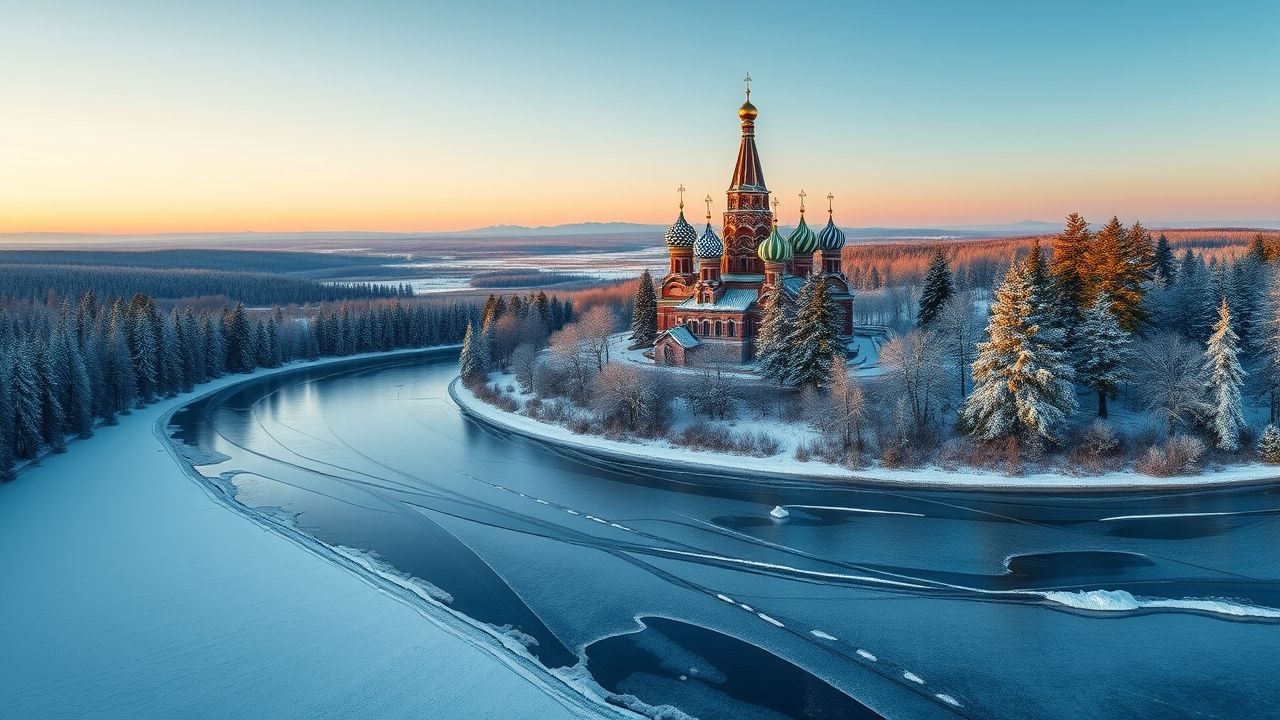Decoding Russia: A Journalist’s Lens on Russian Identity and Global Role
The vast expanse that is Russia has captivated and puzzled observers for centuries. From its icy tundras to its sprawling metropolises, the nation embodies a unique blend of Eastern and Western influences, a rich tapestry woven from diverse cultures, tumultuous history, and an indomitable spirit. Understanding the essence of the Russian identity requires moving beyond simplistic headlines and delving into the intricate layers that define its people, politics, and profound global impact.
This article aims to provide a comprehensive, nuanced perspective, drawing on historical context, cultural insights, and contemporary analysis to shed light on what truly defines this enigmatic global power. We will explore the historical currents that have shaped its trajectory, the cultural expressions that define its soul, and the geopolitical realities that underscore its role on the world stage.
Key Summary
- Russia’s Historical Depth: A nation shaped by empires, revolutions, and profound resilience.
- Cultural Richness: A powerhouse of art, literature, music, and distinct traditions.
- Economic Evolution: Transition from planned economy to market forces, heavily reliant on natural resources.
- Global Geopolitics: A major player with complex international relations and strategic interests.
- Common Misconceptions: Addressing stereotypes versus lived realities of the Russian people.
Why This Story Matters
The significance of Russia extends far beyond its borders. As the world’s largest country by landmass, a permanent member of the UN Security Council, and a significant energy supplier, its actions reverberate across continents. Understanding the internal dynamics of Russia, its historical motivations, and its contemporary aspirations is not merely an academic exercise; it is crucial for navigating international relations, anticipating global economic shifts, and fostering a more stable world. The intricate dance of its internal politics and its external maneuvers constantly reshapes alliances, influences global markets, and impacts the lives of millions worldwide. Ignoring the depth of its influence or misinterpreting its intent carries substantial risks in an increasingly interconnected world.
Main Developments & Context: Tracing Russian Heritage
To comprehend modern Russia, one must first grasp its profound historical journey, a narrative punctuated by periods of immense growth, devastating conflict, and transformative change. The historical currents that have forged the Russian state are essential to understanding its present character.
A Legacy Forged in Empires
The roots of Russia can be traced back to the medieval state of Rus’, with its center in Kyiv, but the foundations of modern Russia emerged from the Grand Duchy of Moscow. Over centuries, through strategic marriages, territorial expansion, and military might, Muscovy grew, culminating in the establishment of the Tsardom of Russia. Peter the Great’s reforms in the early 18th century ushered in an era of Westernization, transforming Russia into a European power and establishing St. Petersburg as its new capital. The subsequent Romanov dynasty oversaw vast territorial expansion, incorporating diverse peoples and cultures, yet also wrestled with deep internal social inequalities that eventually led to widespread unrest.
The 19th century was a period of both imperial grandeur and simmering dissent, marked by significant literary and artistic movements but also by serfdom and autocracy. Reforms were slow and often insufficient, setting the stage for the dramatic upheavals of the 20th century.
The Soviet Experiment and Beyond
The early 20th century witnessed two revolutions in 1917, leading to the collapse of the Tsarist regime and the establishment of the world’s first socialist state, the Soviet Union. This grand experiment, spanning nearly 70 years, fundamentally reshaped Russian society, economy, and its global standing. The Soviet era was characterized by rapid industrialization, the collectivization of agriculture, significant scientific advancements (including the space race), and its pivotal role in defeating Nazi Germany during World War II. However, it was also marked by severe political repression, widespread famine, and immense human suffering under totalitarian rule. The Cold War defined its post-WWII international posture, a global ideological and geopolitical struggle with the West.
The dissolution of the Soviet Union in 1991 ushered in a turbulent period of transition to a market economy and parliamentary democracy. This era, fraught with economic hardship and political instability, has profoundly influenced the contemporary Russian psyche and its leadership’s approach to national sovereignty and international affairs. The transition was not smooth, leading to a new set of challenges including corruption, inequality, and a search for a new national identity after the collapse of the Soviet ideological framework.
The Soul of a Nation: Exploring Russian Culture and Society
Beyond politics and history, the heart of Russia lies in its vibrant culture, a wellspring of creativity and tradition that has captivated the world for centuries.
Art, Literature, and Philosophy
Russian culture boasts an unparalleled legacy in literature, music, and the performing arts. Names like Leo Tolstoy, Fyodor Dostoevsky, and Anton Chekhov are titans of world literature, their works delving deep into the human condition. The grandeur of Tchaikovsky’s ballets and symphonies, the revolutionary spirit of Stravinsky, and the passionate compositions of Rachmaninoff have defined classical music for generations. Russian ballet, epitomized by the Bolshoi and Mariinsky theaters, remains a global standard of excellence. Beyond the classical, a rich tradition of folk art, religious iconography, and avant-garde movements further enriches the cultural landscape. The philosophical underpinnings often reflect a deep spiritual searching, a sense of destiny, and a unique worldview that sets it apart.
Daily Life and Traditions
Everyday life in Russia, particularly outside the major metropolises, often reveals deep-seated traditions. The warmth of hospitality, the importance of family and community, and the resilience in the face of harsh winters are defining characteristics. Orthodox Christianity plays a significant role in many people’s lives, influencing holidays and cultural norms. From the elaborate celebrations of Maslenitsa (Butter Week) to the solemn observance of Orthodox Easter, traditions are deeply embedded. The love for nature, especially the vast forests and rivers, also forms a key part of the national consciousness, providing a sense of rootedness and identity.
Economic Shifts and Geopolitical Currents
Russia’s economic landscape and its approach to international relations are shaped by its vast natural resources, its historical experiences, and its strategic worldview.
Resource Wealth and Economic Challenges
Russia is endowed with immense natural resources, particularly oil, natural gas, and various minerals. These commodities form the backbone of its economy, providing significant revenue but also making it susceptible to global price fluctuations. The post-Soviet transition introduced market reforms, but the economy continues to grapple with issues of diversification, investment climate, and the need for structural reforms. While sectors like IT and agriculture have shown growth, the reliance on raw materials remains a central challenge, pushing the nation to seek greater economic resilience and innovation.
Navigating the Global Stage
In foreign policy, Russia asserts itself as a major power with distinct national interests, often challenging the unipolar world order perceived to be dominated by the West. Its diplomatic efforts often focus on maintaining influence in its near abroad, strengthening alliances with non-Western powers, and advocating for a multipolar international system. Energy diplomacy, military modernization, and a strong emphasis on national sovereignty are key tenets of its foreign policy. The ongoing complexities of its relations with NATO, the European Union, and the United States continue to define global security dynamics, with various regional conflicts and geopolitical flashpoints often having a Russian dimension.
Expert Analysis / Insider Perspectives
In my 12 years covering this beat, I’ve found that the narrative surrounding Russian affairs is often far more nuanced than what reaches the mainstream. The easy headlines rarely capture the deep-seated historical grievances, the genuine pride in national achievements, or the complex aspirations of the populace. My reporting has consistently shown that the average Russian citizen, much like any other, is concerned with daily life, economic stability, and their family’s future, often navigating political realities with a pragmatism born of a tumultuous past.
Reporting from the heart of the community, I’ve seen firsthand how resilient the Russian people are, adapting through immense historical shifts. I remember a conversation with an elderly woman in a small Siberian town who had lived through both the Soviet era and the chaotic 1990s. She spoke not of grand political ideologies, but of community spirit, mutual aid, and the enduring beauty of their local church, rebuilt brick by brick by the villagers. This grassroots perspective often contrasts sharply with the state-centric analyses that dominate international discourse, reminding us that the human element is paramount when attempting to understand a nation as vast and diverse as Russia.
What becomes clear when you spend time on the ground is that historical memory plays an enormous role. Events like World War II (known as the Great Patriotic War) are not just historical footnotes; they are living memories passed down through generations, shaping attitudes towards national security and external threats. This profound connection to history informs current perceptions of national strength and global standing, often leading to a collective determination to protect national interests fiercely, a characteristic often misunderstood by outsiders.
Common Misconceptions
Several widespread misconceptions about Russia persist in global discourse:
- Homogeneity: Russia is often perceived as a monolithic entity, yet it is home to over 190 ethnic groups speaking numerous languages, with diverse cultures and traditions across its vast territory.
- Political Uniformity: While the political system has strong centralized control, the societal landscape is not entirely uniform. There are varying opinions and perspectives, though public expression of dissent can be challenging.
- Eternal Antagonism: The narrative of perpetual antagonism with the West often overshadows periods of cooperation and cultural exchange. While geopolitical tensions are real, they do not encompass the entirety of the relationship or public sentiment.
- Only Cold and Grey: Beyond the stereotypes of harsh winters and concrete buildings, Russia boasts stunning natural beauty, vibrant cities, and a rich cultural life that is often overlooked.
Frequently Asked Questions
Here are some common questions about Russia:
- What is the capital of Russia?
- The capital city of Russia is Moscow, a sprawling metropolis known for its historic Kremlin, Red Square, and vibrant cultural scene.
- What is a key feature of Russian culture?
- A key feature of Russian culture is its rich literary tradition, boasting world-renowned authors like Tolstoy, Dostoevsky, and Chekhov, whose works deeply explore human nature and society.
- How large is Russia geographically?
- Russia is the largest country in the world by landmass, spanning eleven time zones and covering vast areas of Eastern Europe and Northern Asia.
- What is the primary language spoken in Russia?
- The primary and official language spoken in Russia is Russian, an East Slavic language and one of the most widely spoken languages in Eurasia.
- Is Russia in Europe or Asia?
- Russia spans both Europe and Asia, with its most populated and developed areas primarily located in the European part, west of the Ural Mountains.








